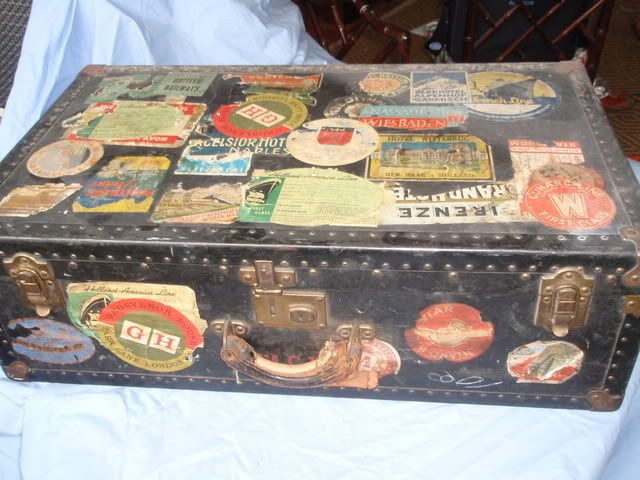Costing an average of 15 to 20 cents each, RFID tags are being used by a number of major airports throughout the world and have now, finally, found their way into the screening process at McCarran International Airport in Las Vegas and a few other small airports throughout the United States. They are among other airports across the globe that are testing out RFID tags. If the tests prove as reliable as hoped for, then you might just be seeing a lot more RFID tags on your luggage as you travel throughout the United States. Which would be a good thing.
At the moment an estimated 8 out of every 1,000 checked bags fail to reach their destination. An estimated 10 percent of the luggage tags now in use are read improperly due to damage to the tag such as tearing. RFID tags would be read by a radio antenna when the tag pases within a few feet of the antenna, alerting airport handlers to any bags that have strayed off course.
One inherent flaw that I can see in the system is that if the tags are attached as per normal luggage tag attachments, then they can be torn off like normal luggage tags can be. I think, given the thin size of the tags, that my preference would be to have it affixed more securely to the bag. Maybe go back to the days when people put stickers from their trip on their luggage? The RFID tag could be a part of a small travel sticker you can buy for a couple of bucks and plaster on your bag.

Okay, so maybe that would be a little confusing. The things would need to be able to be deactivated or you would have your bag going in a hundred different directions in no time at all, huh? Perhaps something that is securely affixed and must be removed by a person, like those plastic things they put on coats in stores? Create a tag that can be secured to the bag with a strong loop deal and a baggage handler at the end destination removes it as it is sent out onto the baggage carousel? The problem there is you slow down the luggage unload and up the costs by having to pay someone to remove all those tags as they leave.
I suppose people could just buy the sturdier tags, instead of 15 to 20 cents pay $5 to $15 for a tag that will keep your bag on the right track? Have it so it can open up and the RFID be changed for a new one when you fly again. And if we're going to go that route, how about luggage designed to have a small compartment built into it, something that is just big enough that the little door is opened and an RFID tag inserted into the compartment and the door snapped back closed.
I suppose that for now, the answer is for travelers to just understand that there is no guarantee that the system is 100% foolproof and that there are a few bags that will be lost no matter what happens. All else fails, condense your travel needs down into what you can carry on board with you. For now, those who must have checked bags at least have a hope of upping the odds that their bags will make it to the destination they were sent to. RFID tags may not be the perfect solution, but they do balance things a bit more in the favor of the traveler.



0 comments:
Post a Comment